[ad_1]
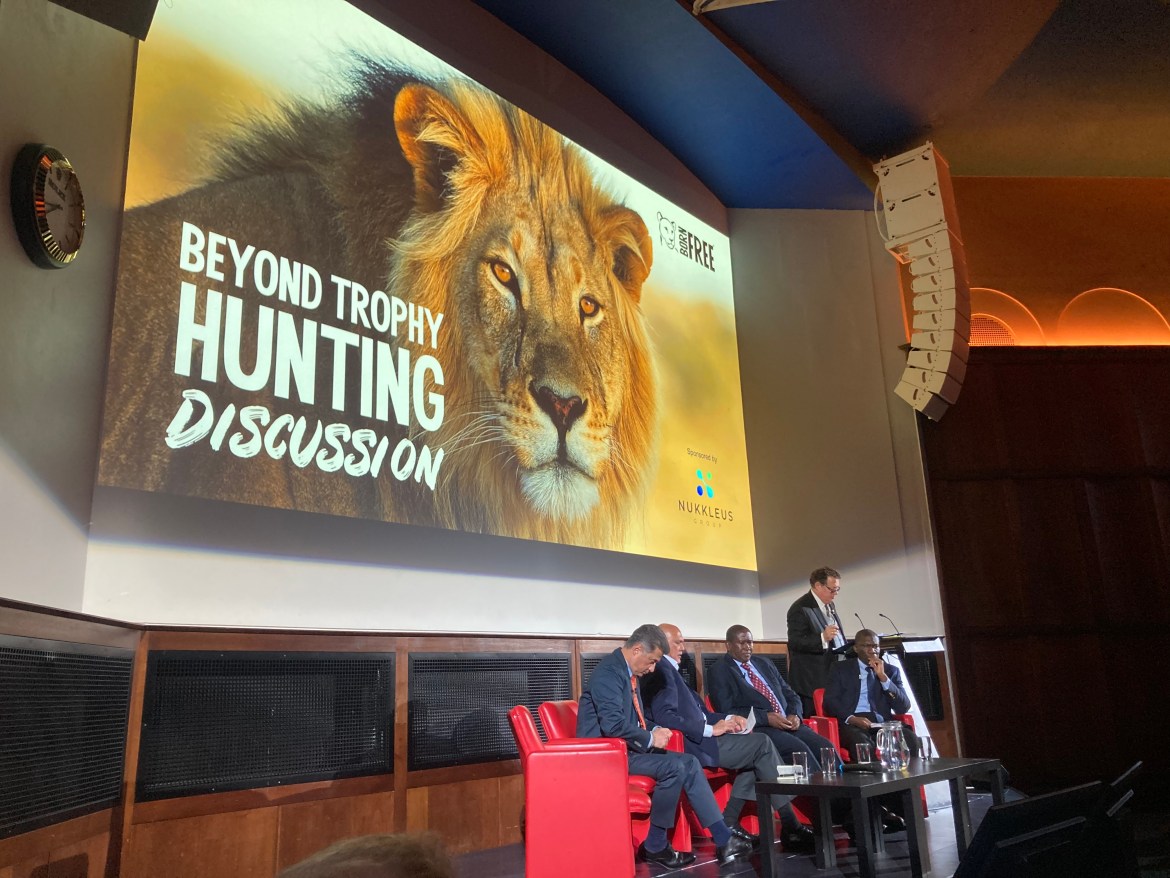
It’s time to look previous the moral debate of whether or not or not trophy looking must exist, and instead look ahead to the viable different routes to hold a scalable monetary system to native communities all through Africa – one which utilises residing alongside wildlife, with out (over)exploiting it.
That was the message and objective of ‘Previous Trophy Trying’, a selected event held on the Royal Geographical Society (RGS) on the end of 2022. The quite a few and motivating night of discussions focussed on member conservancies, ecotourism, carbon credit score and biodiversity credit score amongst completely different potential choices, as choices to trophy looking which will current a viable, clear, community-lead, monetary system for native and indigenous communities.
It was well-known early on in proceedings that as a result of the quickest urbanising continent on the planet; Africa, can be essentially the most dramatically altering continent of the twenty first century – and although trophy looking occurs the world over, Africa might be the principle focus of the discussions occurring.
What occurred at Previous Trophy Trying?
How do you condense such a big matter into one evening of debate? And likewise, how does one translate that proper right into a coherent weblog put up? Let’s give it a try…
Firstly, I fully don’t agree with trophy looking – in case you’ve study my weblog sooner than, you’ll know I advertising marketing campaign in the direction of it, so let’s merely get that out of the way in which wherein now. I’m going to do my biggest to share proper right here the messages (and my interpretation of them) which were launched on the afore talked about ‘Previous Trophy Trying’ event; which endeavoured to remain neutral to the moral debate and centered on a solutions-based narrative. Even so, the first degree that springs to my ideas is the simple indisputable fact that trophy looking is constructed on a model that monetises one second throughout the lifetime of an animal; its lack of life. As quickly because the one-time transaction is made, and that is life ended, there’s no extra money to be constituted of that single animal at provide.
Establishing an monetary system throughout the value of a residing creature seems the pure place to start for explaining why there’s a necessity for varied choices to creating wildlife-based income for communities; why this evening of discussions was important; and why it was occurring.
There’s moreover an argument for ending the Neo colonial observe of westerners coming into Africa, killing its wildlife and taking it once more to their properties as a prize – nevertheless I’m not the becoming explicit particular person to kind out that debate. Try Paula Kahumbu’s sort out that instead.
To provide significantly diversified illustration, most people dialogue on the RGS involved panellists: Timothy Kamuzu Phiri, an environmental educator and activist, and Authorities Director of Mizu Eco-Care in Zambia; Tom Lalampaa, CEO of Kenya’s Northern Rangelands Perception (NRT) {and professional} in community-run conservation; Praveen Moman, Founding father of Volcanoes Safaris, which is on the forefront of reviving ecotourism in post-conflict Uganda and Rwanda and Dr Ralph Chami, Assistant Director of the Worldwide Monetary Fund and Co-Founding father of Blue Inexperienced Future and Rebalance Earth, chaired by Will Travers OBE, Co-Founding father of Born Free Foundation.
Put merely, the take residence messages that appeared to resound many occasions in the middle of the course of the evening have been that:
- Neighborhood possession is important
- wildlife requires connectivity and corridors
- tourism need to be the prevented from over powering conservation
- and that credit score (each carbon or biodiversity credit score) should not create a practice of ‘enterprise as normal’ excused by offsetting.
Although a wealth of fascinating dialogue and viewers Q&A occurred, I’d want to focus now on the parts that resonated most with me after years of campaigning to see an end to trophy looking every residence and abroad, and what I felt left most likely essentially the most to imagine over.
Choices that protect nature ought to keep throughout the arms of native people, nevertheless with strong constructions of governance…
Key to a number of the viable choices talked about all by the night was the clear message that native choices require native people. It may seem obvious, nevertheless with typical strategy of funding involving a lot of stakeholders – sometimes with money coming from wealthy western nations – it could be the case (and often has been) that administration of what happens to African nature and wildlife is throughout the arms of the place the money comes from.
One in every of many stand out phrases from the evening was that we should always search to create “conservation of inclusivity, instead of exclusion”, and this undoubtedly extends to land possession.
It’s crucially important for the way in which ahead for conservation that land rights belong to indigenous communities, and panellists implored that western conservationists ought to help native and indigenous people with establishing their very personal constructions of funding, transparency and governance.
“We’ve to alter our mindsets to only settle for that communities may private points,” obtained right here one integral comment from the panel.
Among the many many alternative methods of the way in which we are going to create group owned and clear strategy of funding was the proposal from Dr Ralph Chami that carbon credit score ought to flip into equal in value, guaranteeing prices of sale and alternate keep the an identical all by the chain.
I latterly listened to an episode of The Guardian podcast regarding the discrepancy in environmental value of carbon credit score too, and although I didn’t select up on that being launched on the event, I’d personally put forward that that wishes consideration moreover. It a minimum of enhances Dr Ralph’s philosophy that it’s “greater to place cash into the resilience of the forest, and stabilise communities”.
By means of governance, Timothy Kamuzu Phiri well-known the challenges of parliamentary governance, stating instead that; “the biodiversity and native climate crises suggest we are going to’t look ahead to governments to listen to — it ought to require a bottom-up technique, led by native communities.”
We must always take a look at what wildlife is worth in monetary value
Put merely, conservation has to pay, and we now have to utilise a model new method of attempting on the value of ecosystems. Through advisable strategy of appropriately managed tourism, carbon credit score and biodiversity credit score, conservation ought to pay in an effort to harness political will and to incentivise native people to retain land possession.
The dialog turned to the reality that the value need to be given to LIVING nature and ecosystems which could be valued as untouched, pretty than exploited by tourism operators that aren’t ‘biodiversity nice’ and ‘carbon cowboys’ searching for up carbon seize belongings from communities.
For this to happen efficiently, indigenous communities who’re generally in decided need of finance, potential require money upfront to incentivise holding onto their owned land, pretty than selling it for quick money (sometimes massively under-priced). This opened up dialogue spherical down funds for land rental.
Ralph Chami likened this to rental deposits on properties, the place land is rented to philanthropists merely to remain as is, unexploited.
Panellist Tom Lalampaa was able to converse to the value of retaining land possession for carbon sequestration, sharing that Kenya’s Northern Rangelands Perception (NRT), of which he is CEO, oversees a very powerful soil carbon problem on the earth with a value of £4.6 million in 2022 from soil carbon credit score – all whereas supporting species restoration.
Praveen Moman in distinction the value of ecotourism as a way of giving nature monetary value. He spoke of the pressures on wild areas in Rwanda attributable to new cities being created, which impacts the chance of land being purchased to be saved in its pure state. As cities enhance, land is required to help progress, along with a requirement for supporting suppliers, harking back to roads, waste disposal, water suppliers, and plenty of others.
Utilising land rich in biodiversity as a vacationer trip spot has prolonged been used as a tool to hold money from the west to Worldwide South worldwide areas – nevertheless insuring that money is distributed rightly amongst group stakeholders has traditionally been uncared for. Moreover it’s worth noting the long term impression of tourism on these areas – as I’ve lined sooner than on this weblog in relation to the Maasai Mara.
Praveen issued the reminder that ‘an extreme quantity of tourism kills, nevertheless no tourism moreover kills’ with reference to hanging this steadiness.
The choices would require a multi-faceted technique
It’s abundantly clear that no one-size will match all if you happen to take Africa on a country-by-country basis – as one fully ought to; and it was duly well-known that discussions occurring have been going down throughout the prestigious venue in London, and by no means on the continent by which we’re all referring to.
Nonetheless, it appeared clear to me that even with the small handful of countries represented on stage, a multi-faceted technique might be needed even on a per nation basis.
Ultimately, what was being proposed was group retained land possession secured by means of a down charge system; structured, community-led ecotourism; monetising the value of intact ecosystems with a ‘Rebalance Earth’ biodiversity credit score technique, and carbon sequestration that moreover recognises the carbon value of fauna interacting with flora — which isn’t merely seen as a trade-off to proceed enterprise as normal.
Rolling out these choices to create tangible, measurable value would comprise willingness to participate from a lot of stakeholders, at first native people residing in these biodiversity-rich environments.
Hypothetically, if the bottom-up technique spotlighted by Timothy Kamuzu Phiri could have an effect on Governmental protection throughout the desired method, there would nonetheless be a need to comprise completely different sectors in these choices — notably economists, to bridge the funding gap.
“We must always see conversationists educating and coping with the Finance sector,” Ralph Chami proposed, noting that the sector had beforehand been ostracised and so has continued to place cash into extractive suppliers.
There’s a funding gap that we now have to be further trendy in filling
Ralph’s wish to see economists launched nearer into the fold comes from a necessity to go looking out further trendy strategies to finance these choices in a method which will permit a fairer distribution of wealth.
From his expert standpoint as Assistant Director of the Worldwide Monetary Fund, he was able to breakdown the optimistic components that Governments stand to acquire in selling carbon credit score; and the way in which these optimistic components have the potential to realize indigenous peoples and wildlife, if solely the administration mechanism stays clear, and due care is given to the asset that produces carbon.
That’s the place a Rebalance Earth technique is offered in, centring the notion of carbon seize requiring wildlife interacting. Rebalance Earth calculates the carbon value of an animal, and equates that to the worth of a tonne or carbon – thus calculating the value of animal as a carbon seize service.
“Think about it as paying the animal a wage for a job; on this case carbon sequestration,” he outlined.
He added that for carbon credit score to really work in favour of conservation, a approved framework should be developed and carried out, as presently ‘carbon credit score mustn’t all made equal’.
The current worth of carbon dioxide has sky rocketed, presently worth US$100 per tonne, nevertheless Ralph outlined that a person in Africa on the extent of carbon seize may solely be paid $11 per tonne.
Shopping for community-owed carbon credit score would as a result of this truth be preferable, nevertheless it could be exhausting to tell apart between these from privately owned land the place governance hides the transparency of the chain and price at each stage.
“One worth of carbon is required — and blockchain is reply,” Ralph outlined.
One different benefit of such a system is that whereas Governments don’t sometimes recognise ancestral rights, the Rebalance Earth model provides alternate options for ecosystems service to be monetised on behalf of communities, as per Ralph’s mantra; “in no way promote the asset, lease the service,’ likening it to being a home proprietor who rents. “Maintain the possession with the indigenous communities.”
Timothy reiterated the need for a bottom up technique, citing that space individuals leaders are needed as so much, if not more than governance.
It was well-known that for carbon credit score to really revenue rural populations, their community-led administration would require:
- Transparency
- Good communications
- Truthful distribution of wealth
He moreover warned of the unfavorable facet of carbon credit score, the place they supply alternate options to trade-off for ‘enterprise as normal’.
“They’re usually seen as a free different to carry on polluting and doing the entire points that launched us into this problem, as long as it’s traded off.”
Choices may not be glorious, nevertheless they need to start now
“Prepared for completely funded choices won’t be viable in numerous areas, why is it anticipated proper right here?” – I think about it was host Will Travers who raised the aim, and positive, it does seem essential to consider and implement midway choices, like we do with reference to renewable vitality.
The devastation already being attributable to the biodiversity and native climate crises suggest we are going to’t look ahead to governments to listen to — and we don’t have time to attend for a full and full reply. We must always start now for the sake of biodiversity and restore as we go.
“Don’t let the proper be the enemy of the great,” as Ralph Chami put it. “Implement in the mean time, glorious tomorrow.”
Since I attended the Previous Trophy Trying evening, the UN printed a evaluation paper purposely ahead of the United Nations Biodiversity Conference (COP15), formally backing biodiversity credit score as a key native climate finance gadget.
Biodiversity credit score have been definitely debated at COP15, with analysts suggesting that most likely essentially the most troublesome question is how one can value biodiversity – a question that Ralph would potential reply with highlighting the importance of wildlife interacting with its setting — as an example, as seed dispersers, land fertilisers and ecosystem engineers — and calculating its value as a carbon service. The carbon value he designated a single forest elephant is $1.75 million.
Whereas the COP19 CITES conference occurred in November with no economists represented, December’s COP15 was moreover not with out its shortcomings – with people primarily discussing ‘voluntary markets’ run by the personal sector pretty than ‘compliance markets’ shopping for and promoting government-mandated investments.
Some doubted that voluntary credit score would entice ample funding; a level moreover talked about on the Previous Trophy Trying evening.
Viewers member Simon Jones, Founding father of Serving to Rhinos UK, recognized that 23% of trophy looking takes place in South Africa (second solely to Canada), and completely on personal land.
“How can we take these ideas to personal land owners?” he requested.
“Rebalance Earth is a purely funding different,” Ralph answered significantly confidently. “Make the proposition to land owners, educate them.”
I suppose that solely time will inform whether or not or not these choices have adequate of an enchantment to see mass uptake for the sake of sparing the lives of wildlife presently residing as trophy looking ‘stock’; and positively biodiversity at large.
And as I’ve learnt throughout the decade and further that I’ve been writing as ‘Kate on Conservation’, time is, sadly, one factor we merely can’t afford to squander.
[ad_2]
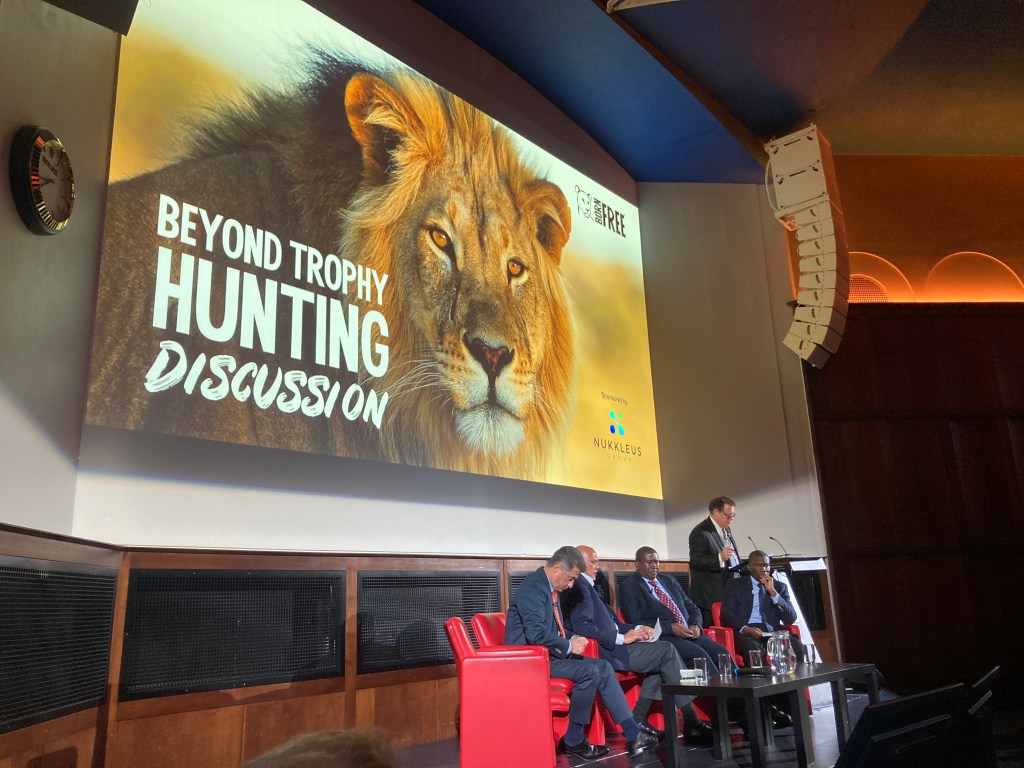

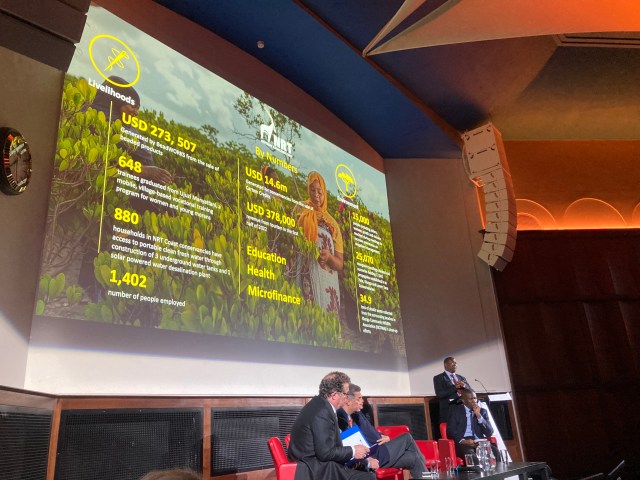
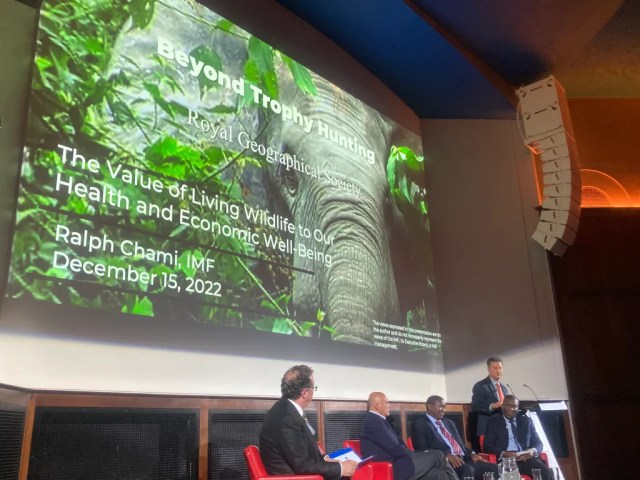
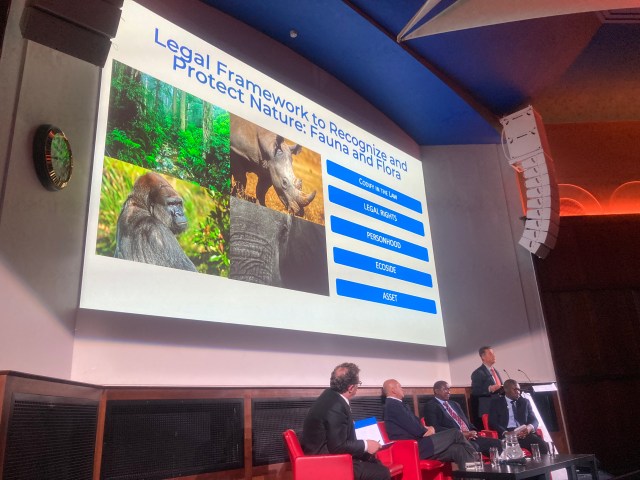

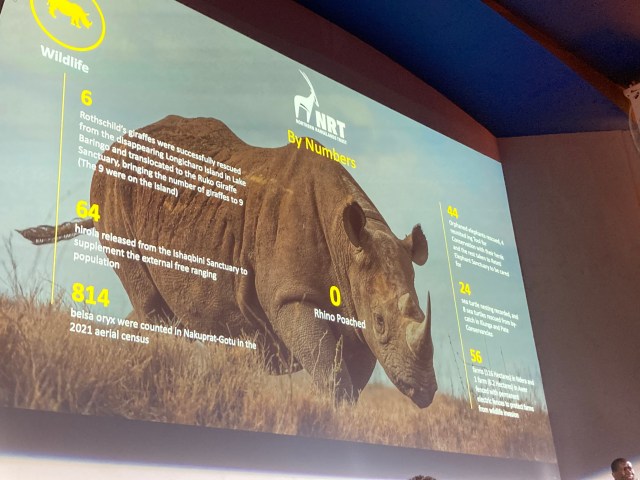
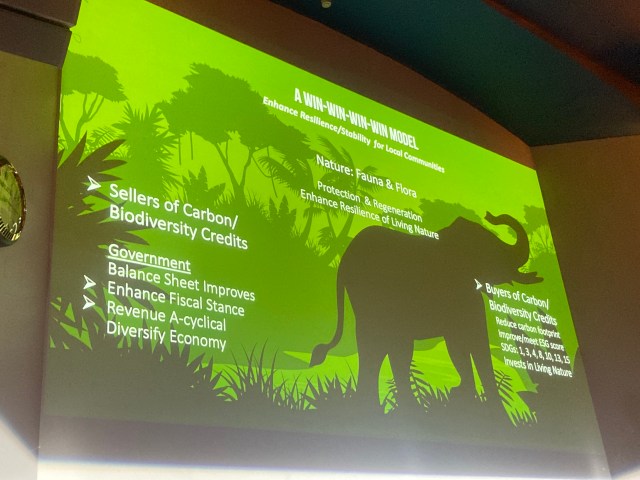

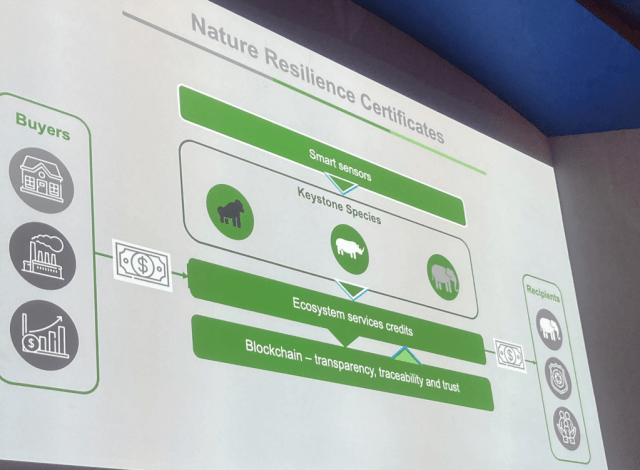
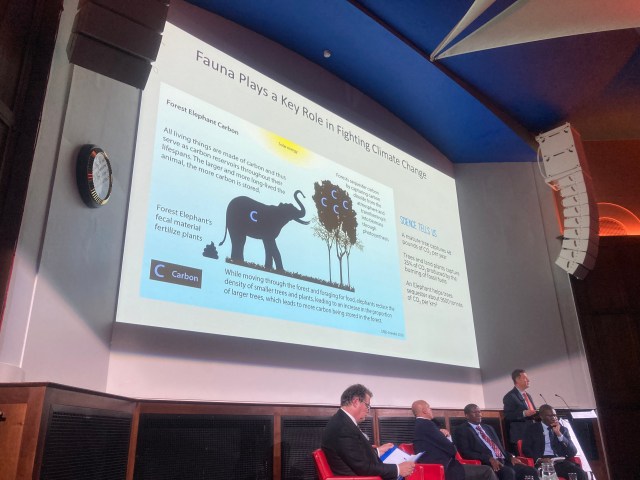
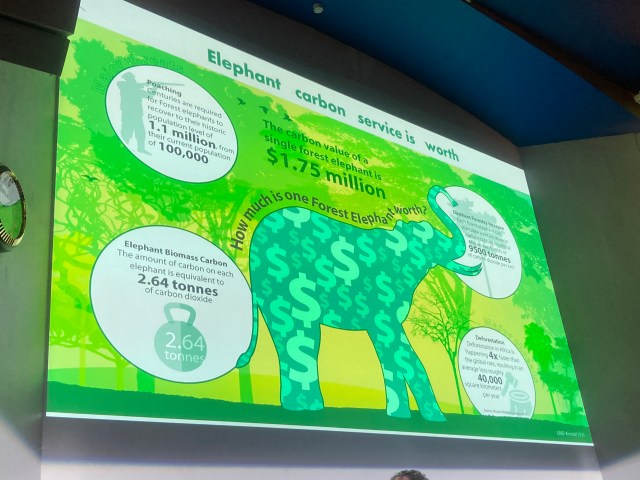
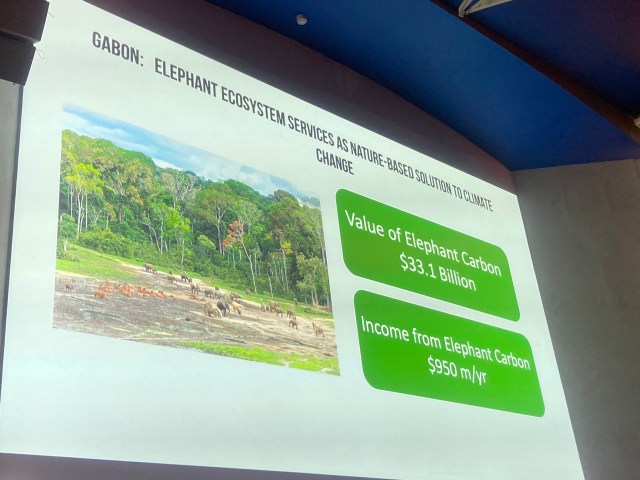


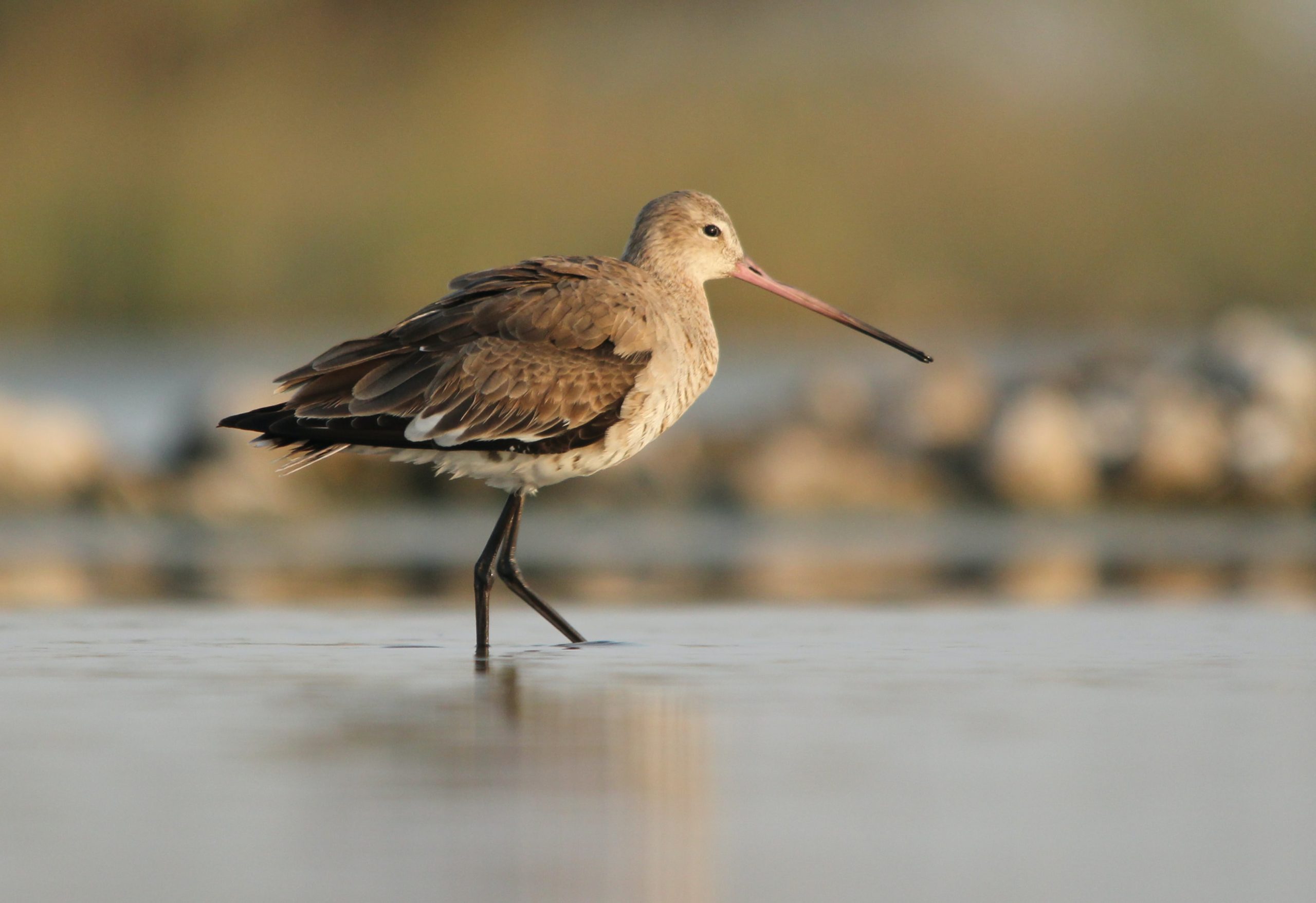
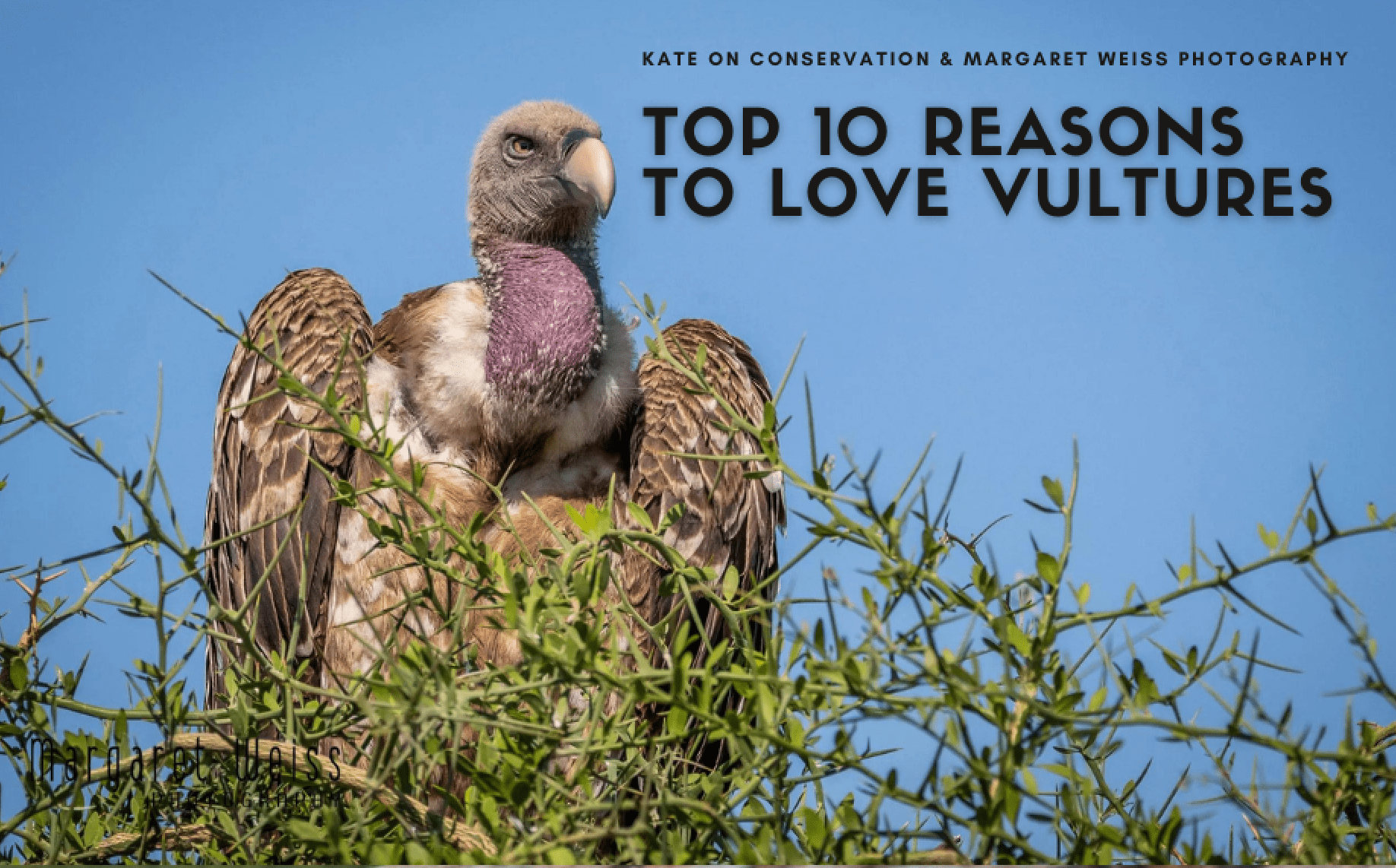
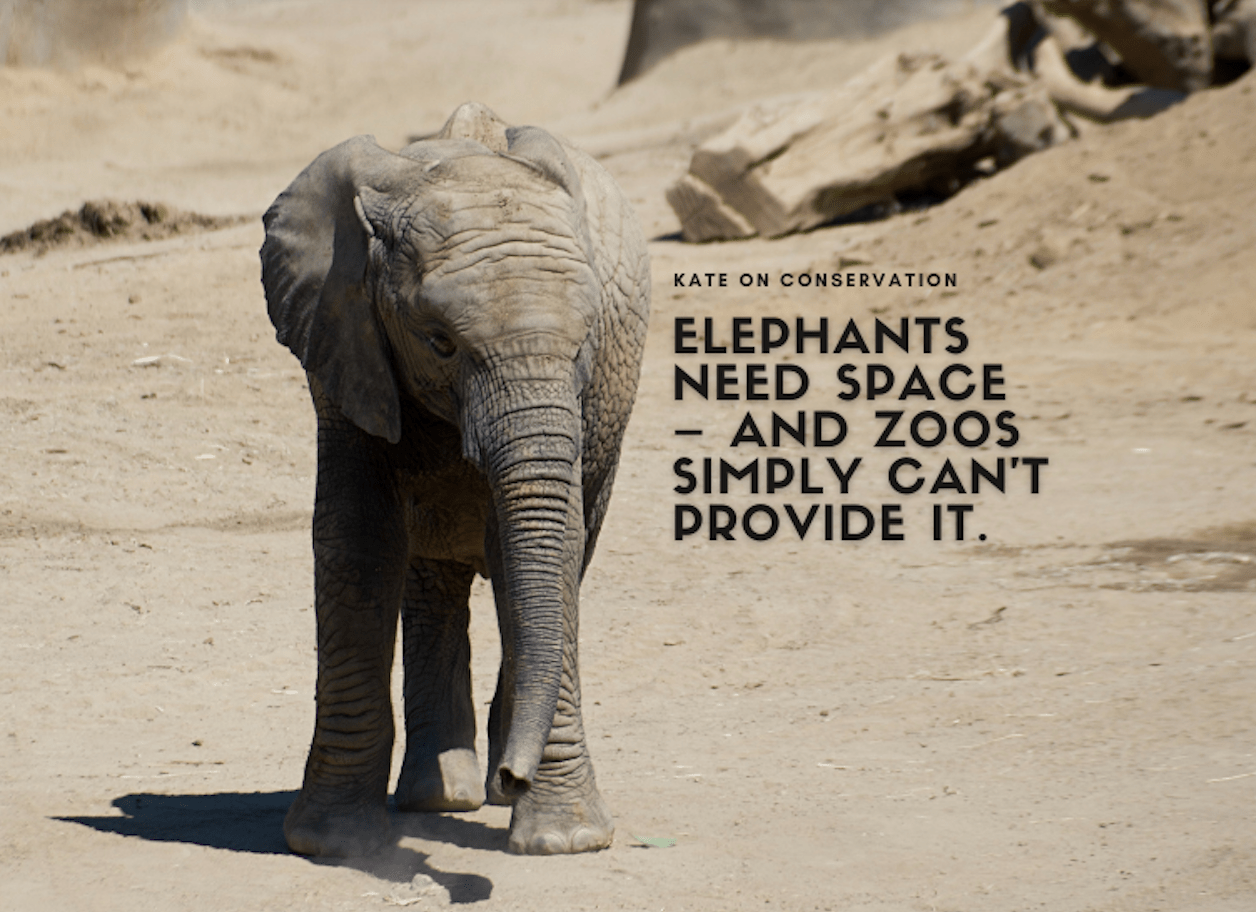
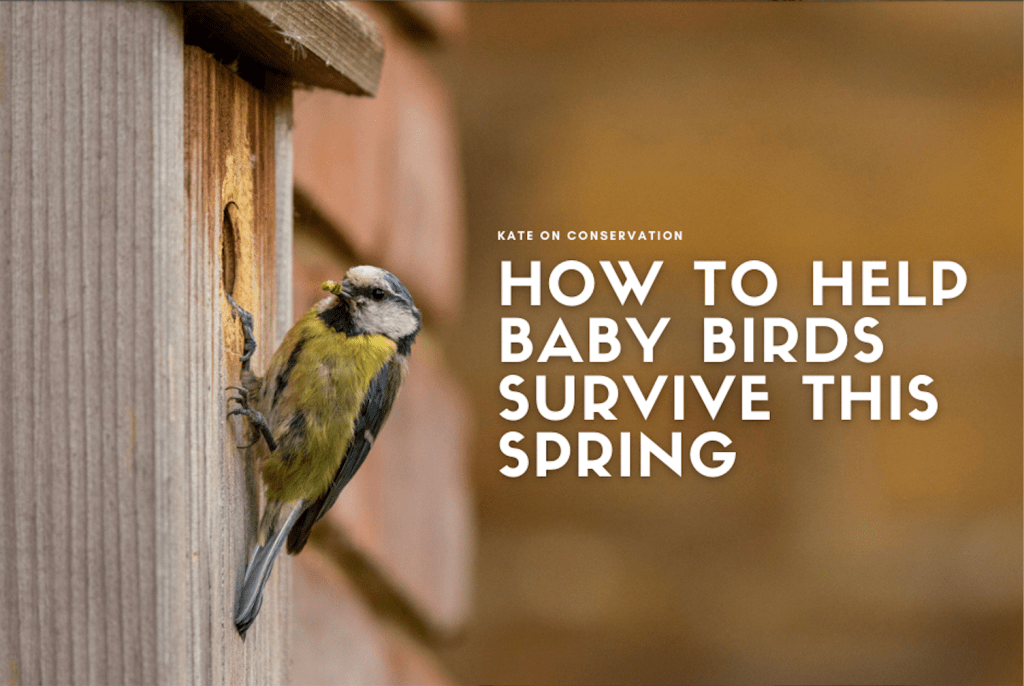

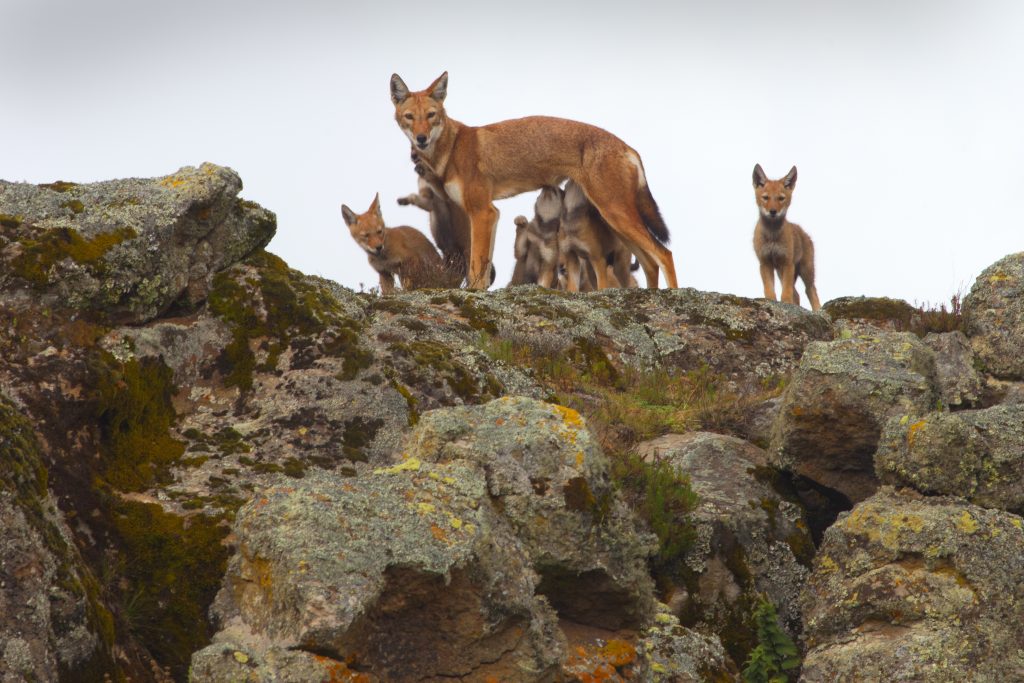

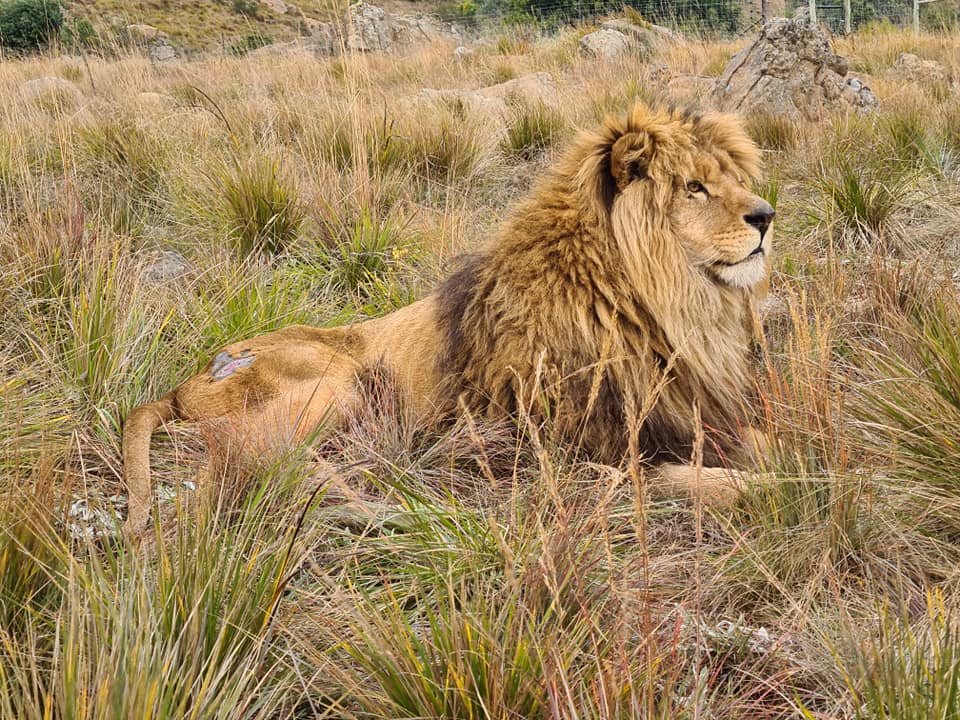

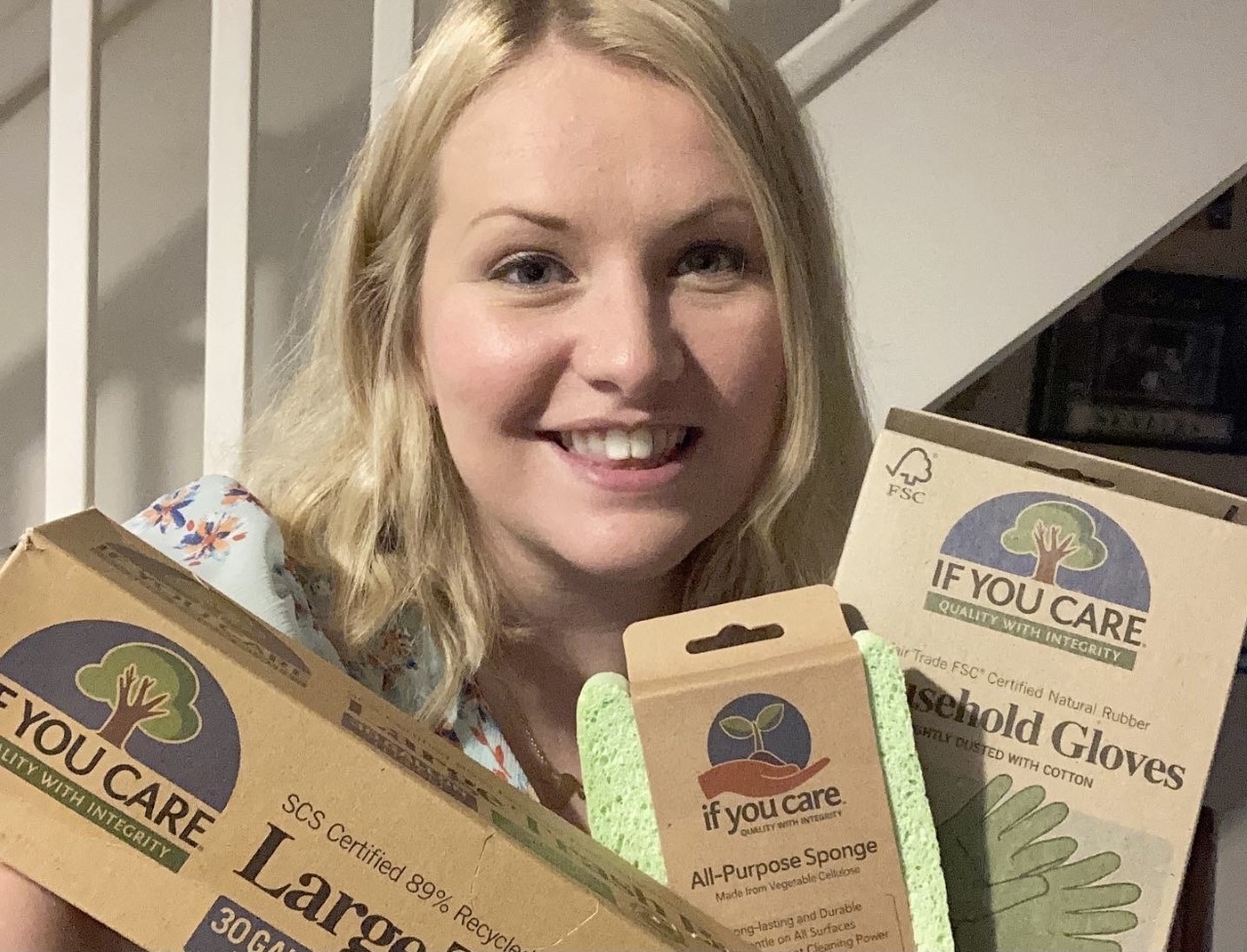

Leave a Reply